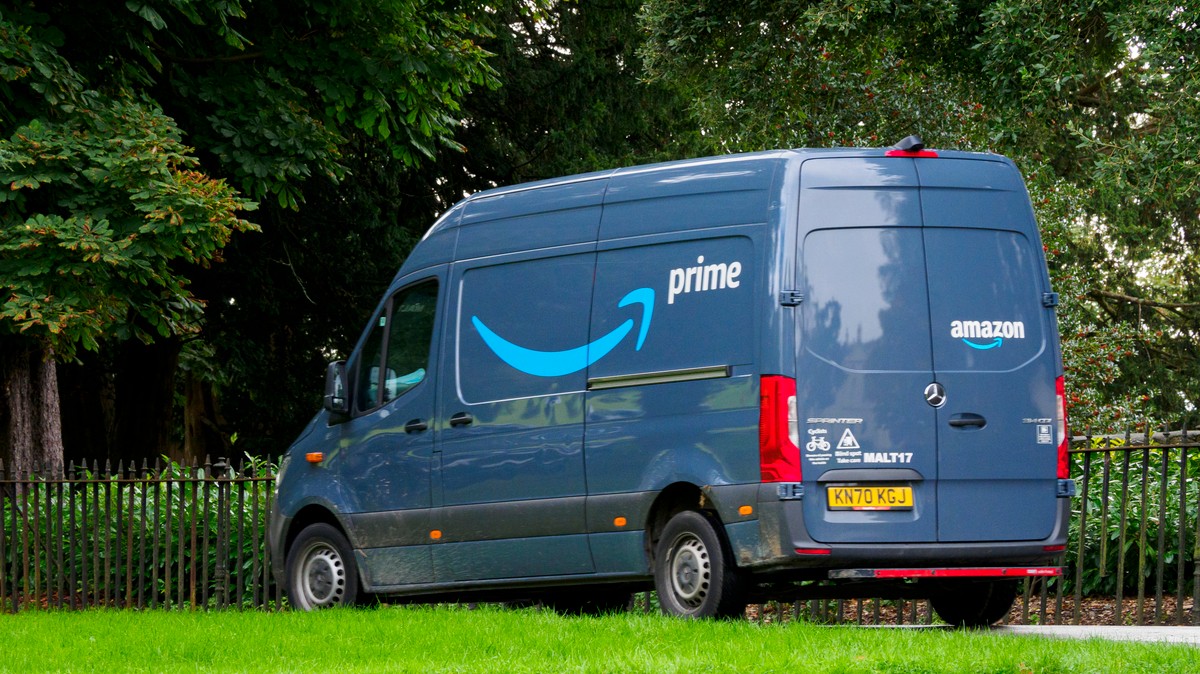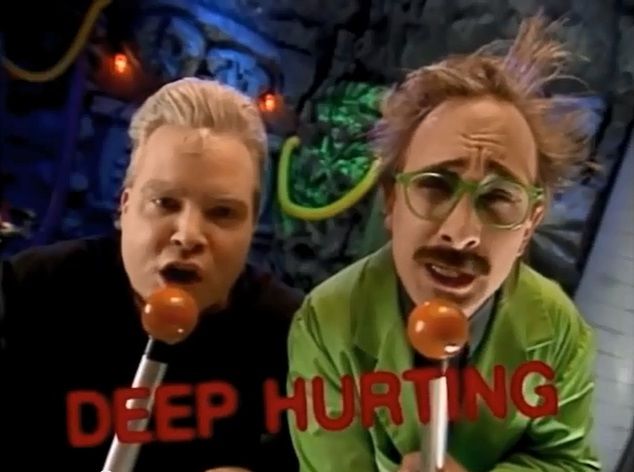The [84] drivers, who work for the Amazon delivery service partner (DSP) Battle-Tested Strategies in Palmdale, California, unionized with the Teamsters in late April, and are demanding that Amazon come to the bargaining table to negotiate a contract. Drivers have already negotiated and ratified a contract with the DSP, which voluntarily recognized their union.
Amazon has previously stated that, because the drivers don’t work directly for Amazon—they work for the DSP, which is then contracted by Amazon—that the company is not obligated to bargain with them. For the past month, the union has been trying to prove that wrong, saying that, despite Amazon placing all responsibility onto the DSP, it is in fact in “complete control” of the DSP’s operations.
While the strike is important, if we can get recognition that these subcontractors are just a way for corporations to dodge employment laws, that would be fucking HUGE.
While the strike is important, if we can get recognition that these subcontractors are just a way for corporations to dodge employment laws, that would be fucking HUGE.
I’ve been idly trying to come up with a framework that discourages this kind of behavior, and I haven’t come up with anything good. Got any ideas? Everything I come up with either wouldn’t work or would never get implemented.
A fucking livable minimum wage to start at. Universal health care for another. Free, or very inexpensive, education for a third. Basic things that other countries seem able to do.
Agreed but the same benefits as a full time employee would be a start.
God they’re really going to do anything they can to avoid unionization. It’s so fucking disgusting.
This obfuscation of who works for who via a series of subcontracts is horrible. I personally know of the janitorial BS that got started by Winters Cleaning and the cinema industry in the 90s. There’s an article that Variety did on it some years back. It’s about removing responsibility from the company benefitting from the labor. It increases the likelihood that impoverished, desperate people will be taken advantage of. When problems are noticed the last company in the line of subcontractors just fold up. No one is held accountable.
If Amazon has deep control of operations due their contracts, then yes, Amazon is their employer.
Good for them! Fuck Amazon!
We work hard for a multibillion-dollar corporation. We should be able to provide food and clothes for our kids.
Why is this never the case for people who acrutually work hard? And why are the lazy people at the top who get more money? This world is wrong.
Awesome! I wish them success!
My family decided to cancel Prime and stop ordering from Amazon after all the union busting they’ve been doing. I want to try my best to buy from companies that treat their employees fairly. It’s really difficult to find reputable companies these days but avoiding Amazon is a no-brainer.
First: Good. Everyone deserves good and safe working conditions (and reasonable pay).
I have the same mixed feelings about Amazon as I do about Walmart. They underpay and overwork their employees, and treat them as replaceable cogs. They often gouge the companies that supply their stock. Their customer service ranges from “OK” to “forget it.”
But as someone living with a low income, I often don’t have a choice. Amazon’s “subscribe and save” program can save me significant money on bulk products, and sometimes Walmart’s prices are the best when I don’t have much money for the rest of what I need.
If you have the choice, I encourage you to choose to avoid these companies. But for those of us struggling to make ends meet, we’re stuck having to give business to companies that not only help create people like me, but depend on our need for them. Please remember that when there are calls that everyone has to stop using them.
This is why boycotts aren’t a replacement for legislation. Blaming consumers for making the best of a shitty system is simply shifting blame onto the victims, when the bad systems which force it are what’s to blame.
Labor didn’t get rid of company scrip by boycotting the stores, they fought against unfair labor and compensation and got it outlawed.
The fact that our system is set up so that the only way people who work full-time can afford to live is spending their money at the same collection of exploitative companies which employ them is only one step removed from it - instead of trapping people physically, they’ve rigged the system to trap them economically.
If you have the choice, I encourage you to choose to avoid these companies. But for those of us struggling to make ends meet, we’re stuck having to give business to companies that not only help create people like me, but depend on our need for them. Please remember that when there are calls that everyone has to stop using them.
Principle comes at a price not everybody can afford.
And this is the way they get big and grab their market share because they can afford to undercut the more ethical competition. When that competition ceases to trade, then they’ll bump up their prices. This is capitalism (at least, as I understand it.)
This. There are also sometimes fringe products that would be difficult to find some another store, but Amazon has 20+ listings of.
It’s a different business of theirs, but they also basically run the internet with AWS. Avoiding all of amazon essentially makes the internet unusable unfortunately…
I agree, but Amazon’s customer service is well known for being outstanding
Are you…being sarcastic?
The last time I had to engage Amazon customer support, I had to go through like 2 levels of chatbots.
No, it was always known as being awesome. I’ve never personally had a problem talking to a human if I needed to -shrug- And whenever I have, they’ve always done extra to fix things.
I will take your word for it, then. While I rarely need to reach out to them, my most recent experience with their support was less than stellar.
Hey man I’m not saying you’re wrong. I believe what you’re saying. Maybe it’s another one of those things that used to be really good, but has gone down hill over time.
It’s gotten worse very recently. Agreed they are usually on top of complaints. Keep in mind Amazon charges third party sellers a ton and passes the fees on to us, so they can afford a refund here and there.
Like all companies they’re shifting to shaft the user.
Fuck Amazon
We work hard for a multibillion-dollar corporation. We should be able to provide food and clothes for our kids.
Why is this never the case for people who acrutually work hard? And why are the lazy people at the top who get more money? This world is wrong.
Because the balance between capital gains and payed labor is way off.
I’m glad. Amazon doesn’t let workers unionize even though their work conditions are bad. I always see these truck/van drivers running to their next stop
UPS strike at the same time right? Solidarity!
UPS employees overwhelmingly agreed to go on strike if their demands aren’t met by July 31st. These Amazon drivers are on strike now - all 84 of them, at one facility, obviously. They’re like the Boston Tea Party.
By contrast, there are 340k Teamsters working for UPS. Their forming picket lines will grind things to a halt in really short order. Good on those Amazon drivers! Hope others join in solidarity.
It’s about fucking time.
Good, those people get worked to death and all those partnered delivery companies are shady af.
Need to get more companies to stop selling their items solely on Amazon. I hate when I try to go to a manufacturers website and they only sell what I’m looking for on amazon
deleted by creator
Guess people will start shopping locally again














